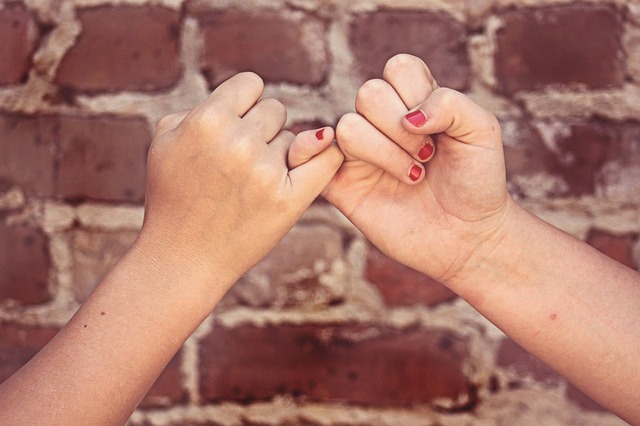Imagine I ask you to make a list of your friends. Not your Facebook friends or Twitter followers. Not the guy down the hall at work that you like to exchange Monty Python quotes with. Friends. Real friends.
Now imagine I ask all the people you list to make a list of their friends. Think you’ll be on all those lists? Probably not.
In fact, only about half the time will the people you consider to be your friends consider you to be a friend. (And of course that also means that only about half the time do you consider someone who thinks of you as a friend to be your friend.)
Why? There are lots of possible reasons. One is that your definition of “friend” may differ from other people’s.
And regardless of how you define “friend,” according to Robin Dunbar you don’t have the time to have dozens of friends. Because of that, Dunbar feels we have different layers or slices of friends: one or two truly best friends (like your significant other and maybe one other person), then maybe ten people with whom we have “great affinity” and interact with frequently… and then all sorts of other people we’re friendly with but who aren’t actually friends. In total, “Dunbar’s number” says you can have about 150 people in your social sphere.
All of which means “friendly” and “friends” are two very different things.
And that means, if Dunbar is correct, that you can only have a handful of true friends. That means some people you think of a close friends don’t see you that way at all.
So why — apart from making you and I wonder how people really feel about us — does this matter?
Superficial, distant, and less than meaningful relationships can lead to feelings of insecurity and loneliness… which can increase your risk of illness and death just as much as obesity, alcoholism, and smoking.
That means the key isn’t to have more friends. The key isn’t to try to have a tons of friends. The key is to have three or four really, really good friends… and then, of course, plenty of people who aren’t necessarily friends but are fun to be around, or result in a mutually beneficial relationship, or share common interests….
You don’t need to be less friendly — you just need to nurture the most important relationships in your life.
Here are a couple of ways:
Stop thinking joining will create a sense of belonging.
Making connections with other people is easier than ever, and not just through social media. Joining alumni groups and professional organizations, wearing golf course polo shirts or college sweatshirts, putting a sticker with initials like “OBX” on your car to announce to the world you vacation on the Outer Banks… many people try hard to show, if only themselves, that they belong.
Unfortunately most of those connections are superficial at best.
If your spouse passes away the alumni organization may send flowers. (Well, probably not.) If you lose your job a professional organization may send you a nifty guide to networking. (Well, probably not, but they will send you the invoice when it’s time to renew your membership.) Anyone can buy, say, a Masters golf shirt. (Don’t ask me how I know.)
The easier it is to join something, the less it means to you. Real friendships take effort. Not work, because you’re glad to do it, but effort.
Be the one a person can call at 3 a.m.
Years ago I lived in a house beside a river. A hurricane was about to put my house in the river. I had about an hour to move as much as I could and I called my friend Doug; I knew he would come, no questions asked.
Today, aside from family, I’m not sure whom I would feel comfortable calling.
I know you have lots of “friends.” But how many people do you feel comfortable calling in the middle of the night if you need help? How many people can you tell almost anything, and you know they won’t laugh? How many people can you feel comfortable sitting with for a long time without either of you speaking?
The best way to find a person like that is to be the person who acts that way. Give before you expect to receive. In fact, give without expectation of ever receiving — because that’s what real friends do.
And the easiest one of all…
Think about what you can do that will help the people closest to you be happier… and then do it.
You care about your casual friends, but with casual friends, “care” is a noun. Real friends see “care” as a verb. They act on their feelings. They step in, step up, and sometimes step outside their comfort zone to do something selfless, just because they can.
If you want to have closer friends, make “care” a verb. Support. Encourage. Help.
And if you don’t know how, ask — because real friends ask.
To receive similar content, “Like” us on Facebook @ https://www.facebook.com/niagarabuzz.ca












